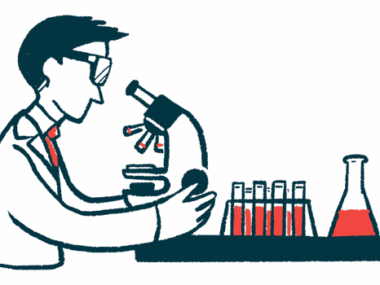Lowest Dose of LV-101 Fares Well in Phase 3 Trial of PWS Children
Written by |

Children with Prader-Willi syndrome (PWS) experience significant reductions in their excessive hunger, anxiety and distress behaviors when treated with the lowest dose of Levo Therapeutics’ LV-101 (intranasal carbetocin) in a Phase 3 clinical trial, the company announced.
While the highest dose under investigation (9.6 mg ) did not induce similar improvements in hunger, meaning that the CARE-PWS trial (NCT03649477) failed to met its primary goal, the findings for the 3.2 mg dose show that several secondary endpoints were met.
Patients in the trial and its long-term extension program now will be transitioned to receive the 3.2 dose for the remainder of their follow-up.
“With no approved therapies to address their most challenging symptoms, patients with PWS continue to suffer from insatiable hunger and anxiety, which are debilitating and can be life-threatening if left untreated,” Jennifer L. Miller, MD, pediatric endocrinologist, University of Florida, said in a press release.
“These positive results of the Phase 3 CARE-PWS study strengthen the belief that intranasal carbetocin appears to be an effective treatment for patients living with PWS,” Miller said.
LV-101 is a formulation of carbetocin, a compound engineered to work in a way similar to that of the naturally occurring neuroendocrine hormone oxytocin. PWS patients appear to have fewer oxytocin-producing brain cells, which could be part of the reason for their social, emotional and feeding difficulties.
Carbetocin was designed to have a greater affinity for the oxytocin receptor than the naturally occurring hormone, while also showing lower affinity for the related vasopressin receptors. LV-101 is designed to be delivered into-the-nose three times per day before meals.
The treatment earned fast track designation from the U.S. Food and Drug Administration for the treatment of PWS last year, after inducing clinically meaningful improvements in unrelenting hunger (hyperphagia) and obsessive-compulsive behaviors in a proof-of-concept Phase 2 trial (NCT01968187).
The ongoing CARE-PWS trial is investigating the efficacy, tolerability, and safety of two LV-101 doses — 9.6 mg and 3.2 mg — in children and adolescents with PWS, ages 7 to 18.
While the study initially was expected to recruit 175 participants, enrollment was closed early due to the COVID-19 pandemic. In total, 119 patients were included and assigned randomly to receive either the 9.6 mg dose, the 3.2 mg dose, or a placebo for eight weeks.
Participants then became eligible to enter a long-term follow-up to continue receiving the active treatment for 56 weeks. Those previously given a placebo also could enter and receive LV-101.
The trial’s main goals were to determine whether the 9.2 mg dose was better than a placebo at lowering the excessive hunger and obsessive-compulsive behaviors in PWS patients, assessed using the Hyperphagia Questionnaire for Clinical Trials (HQ-CT) and Children’s Yale-Brown Obsessive Compulsive Scale (CY-BOSS), respectively.
Secondary measures included changes in those scales in patients receiving the lowest dose compared with a placebo, as well as improvements in anxiety, depression, and global impression for both doses.
The recently reported results demonstrated that the 9.2 mg dose was not significantly better than a placebo at reducing hunger and obsessive-compulsive behaviors.
While the 3.2 mg dose also did not improve obsessive-compulsive behaviors, it did reduce the constant feeling of hunger in patients. It also significantly improved anxiety and distress, as assessed with the PWS Anxiety and Distress Behaviors Questionnaire, and lowered the clinician’s perceived global disease severity, measured with the clinical global impression of change (CGI-C).
LV-101 was well-tolerated by patients overall. Adverse events (side effects) reported with the 3.2 mg dose included headache, flushing, diarrhea, nasal discomfort, fever, and upper respiratory tract infection. These all were considered mild-to-moderate in severity.
Following the placebo-controlled period, all CARE-PWS participants transitioned into the extension program. Additional improvements in scores were observed and maintained during this period. The trial is expected to be complete in June 2021.
“This is a long-awaited step towards addressing the substantial needs of individuals living with PWS. We are excited by these important results that were achieved after decades of interest in addressing the oxytocin deficiency in PWS,” said Sara Cotter, CEO of Levo Therapeutics.
“We are also pleased that our efforts to develop new tools for clinical evaluation of this rare, neurodevelopmental disorder have enhanced our understanding of the real-world impact LV-101 has on anxiety and distress behaviors,” Cotter said.
“We would like to thank the CARE-PWS participants, their families, our partners, and the entire PWS community for their support and ongoing contributions to this research,” Cotter added. “We look forward to working closely with regulatory authorities in the United States and abroad to bring this promising therapeutic to patients as quickly as possible.”





